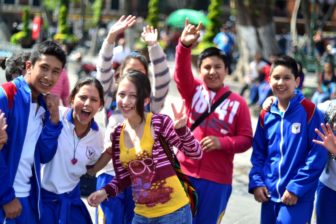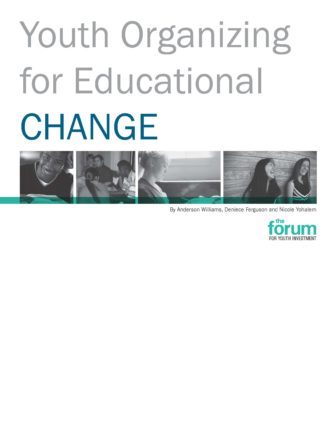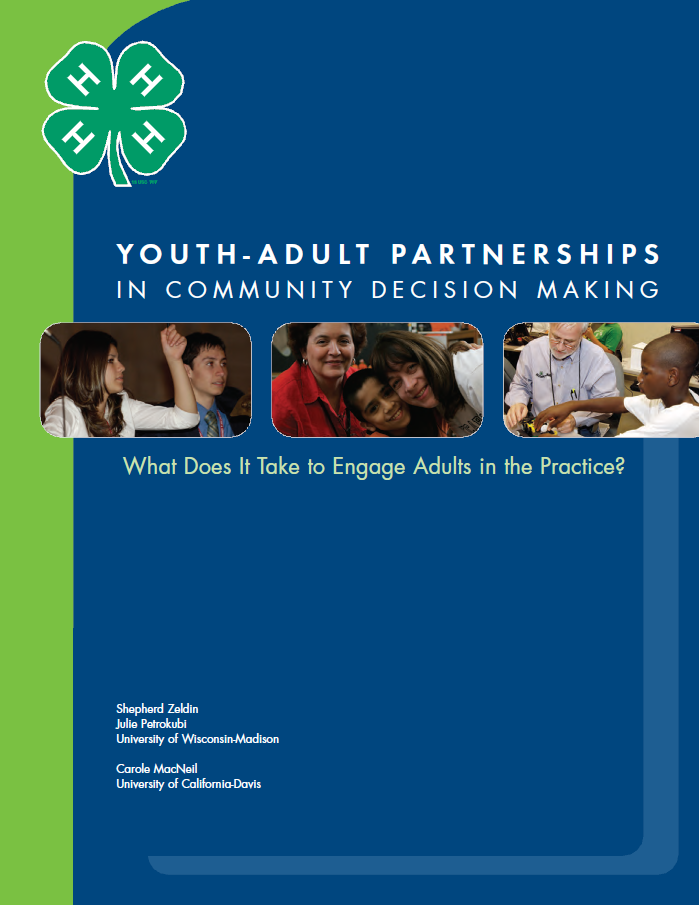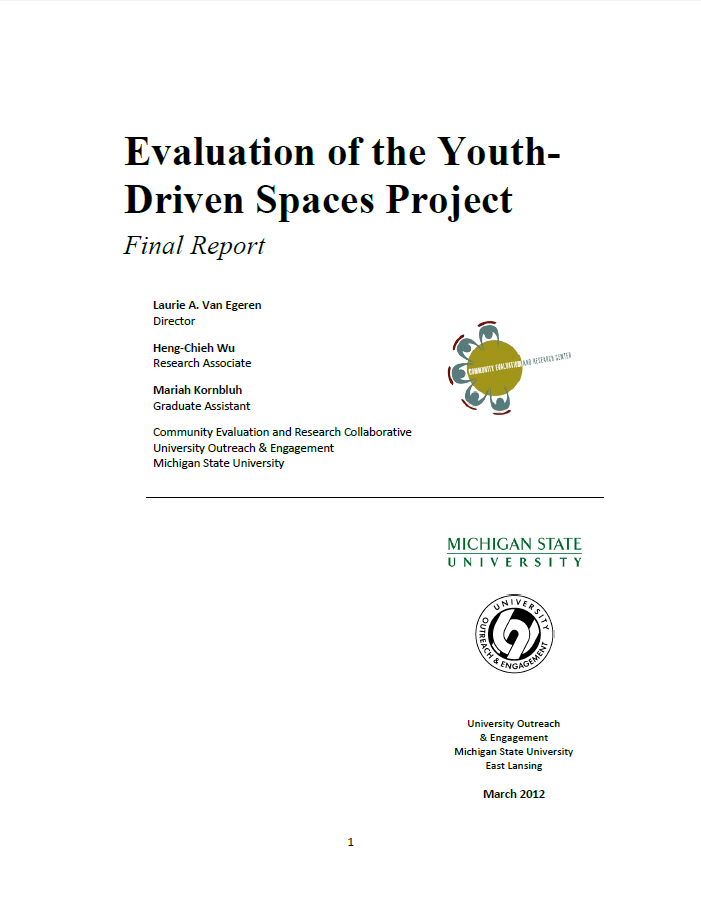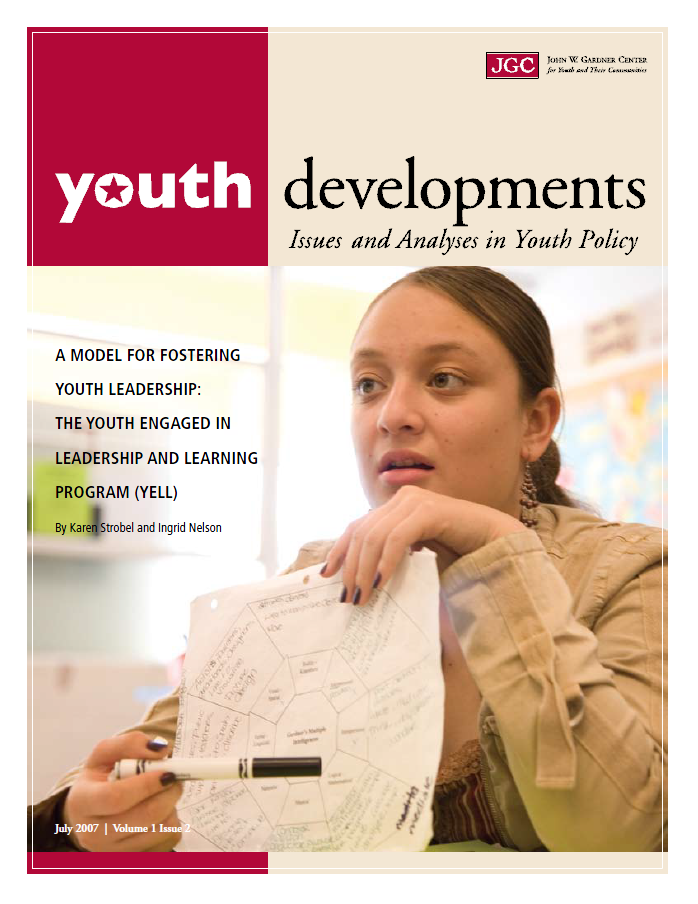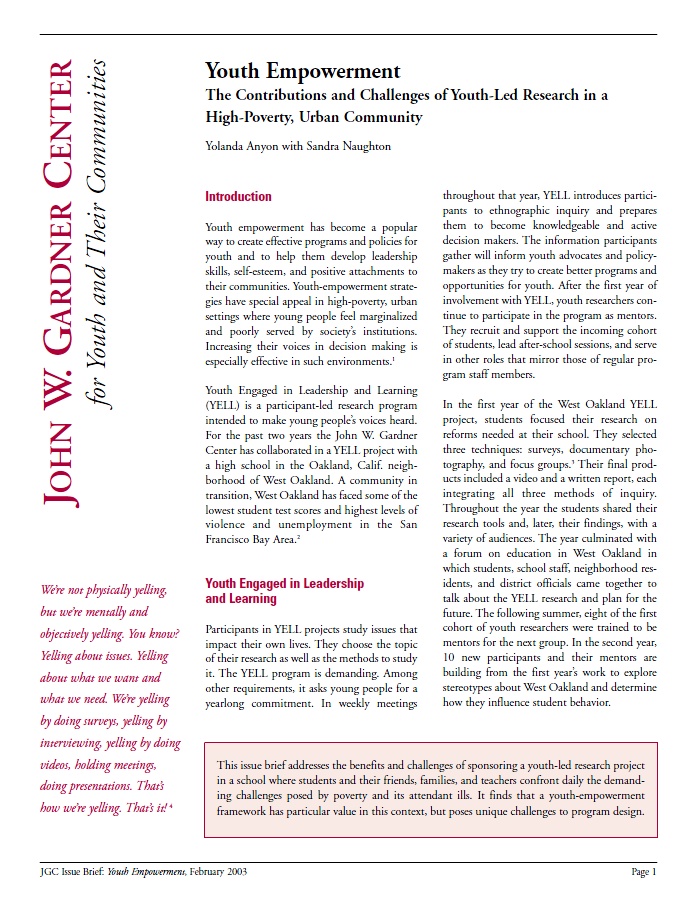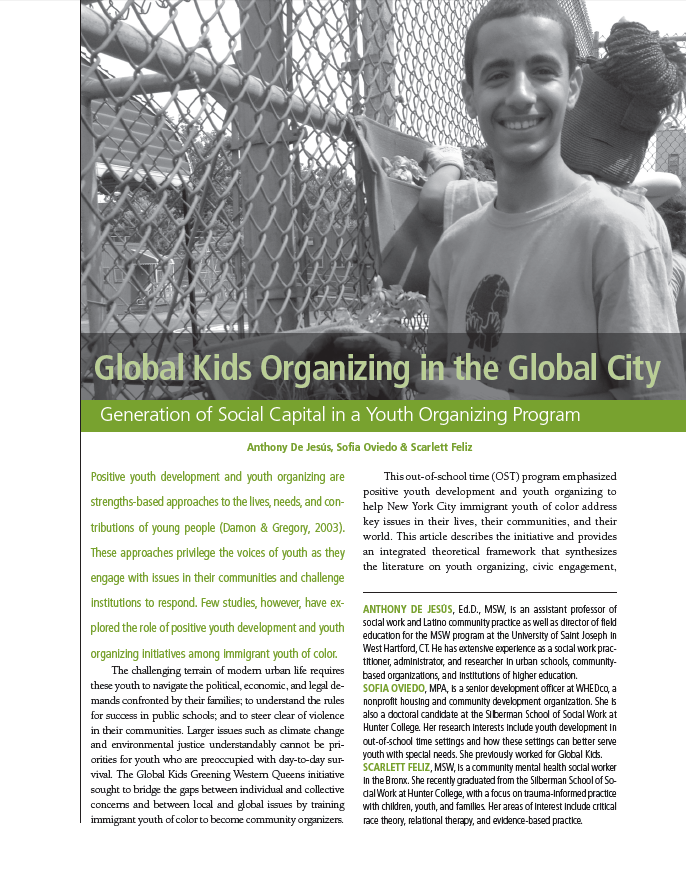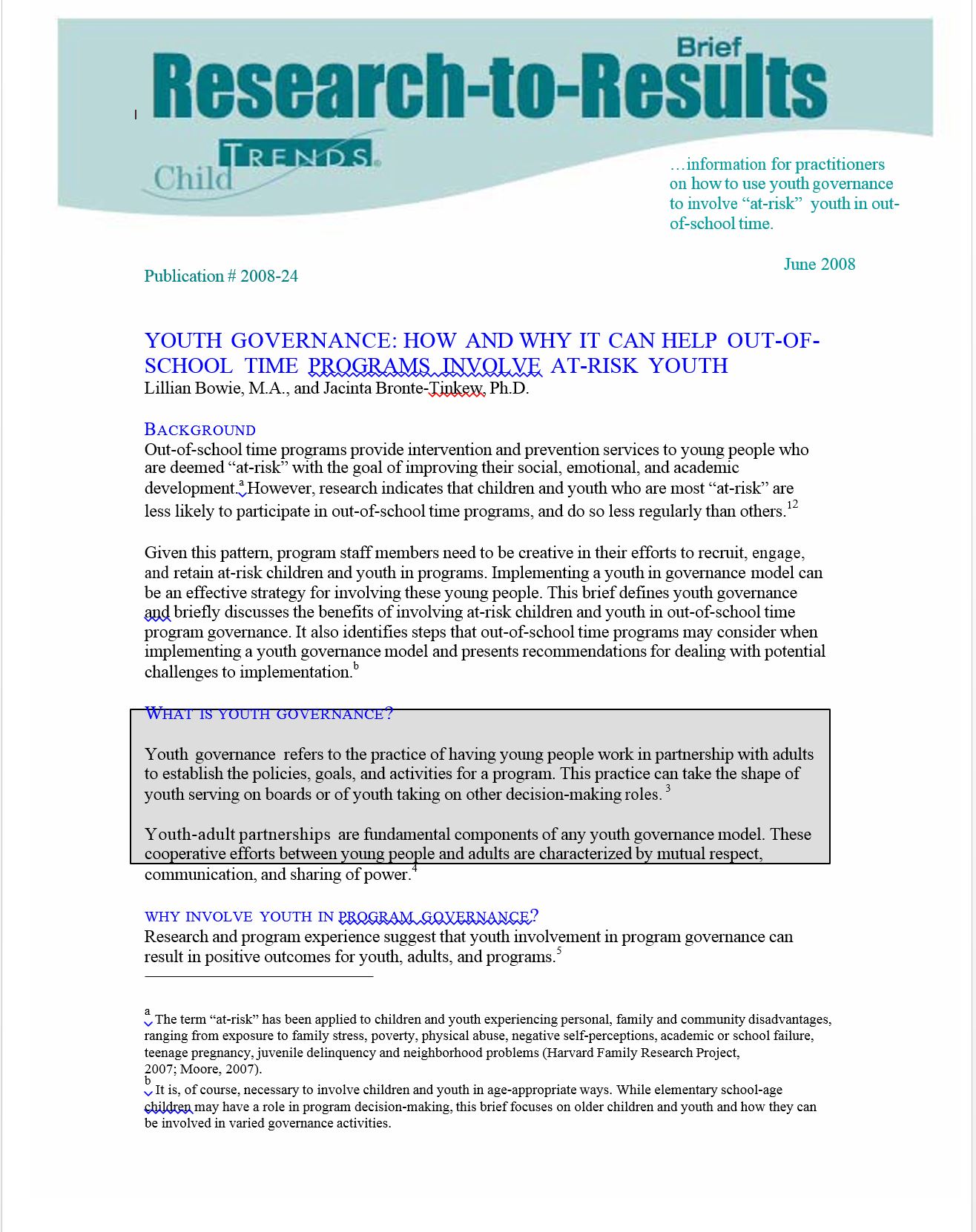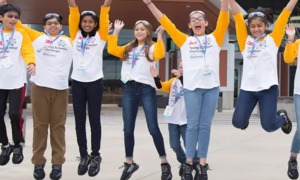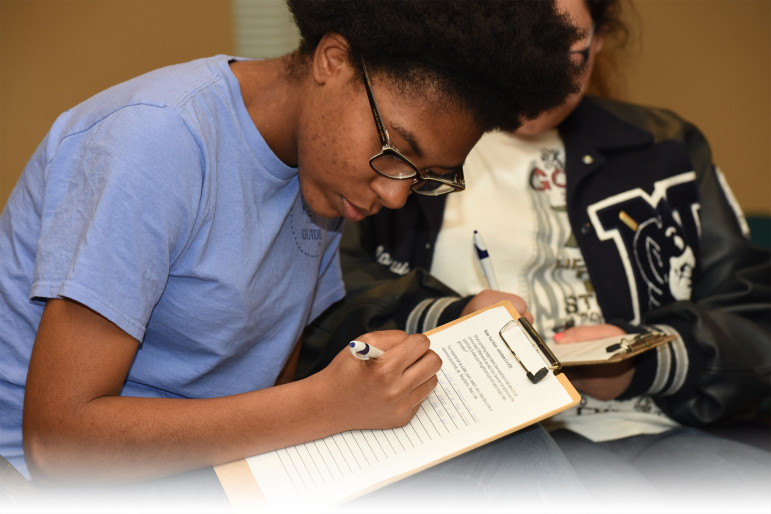
Explore & Download These Resources
An “I” in Teen? Perceived Agency in a Youth Development Program
This article in Afterschool Matters describes how youth develop and host a U.S. history Regents review night for other youth, lead gallery tours and activities, and publish their materials on a historical society website. As a result, they develop a strong sense of agency which also correlated with improved academic skills.
Youth Organizing for Educational CHANGE
This publication provides case studies of youth agencies that successfully organized youth to engage in organizational change, as well as identifies key strategies that are common across the agencies studied.
Youth-Adult Partnerships in Community Decision Making: What Does It Take to Engage Adults in the Practice?
This publication describes the research on youth-adult partnerships and describes the obstacles to implementation, including adults gaining a broader understanding of their role and time limitations.
Evaluation of the Youth-Driven Spaces Project
This evaluation of the Youth-Driven Spaces Project identified several features that may have had an impact on the success of this program including a residential Summer Institute, follow-up forums, both youth-adult and administrator-specific, and coaching among other strategies.
A MODEL FOR FOSTERING
YOUTH LEADERSHIP: THE YOUTH ENGAGED IN LEADERSHIP AND LEARNING PROGRAM (YELL)
A description of the YELL program, in which participants are asked to identify problems in their schools and communities and to analyze the root causes of those issues. YELL participants learn how to conduct interviews, take field notes, develop surveys, create video documentaries and analyze their data.
Youth Empowerment: The Contributions and Challenges of Youth-Led Research in a High-Poverty, Urban Community
An article about the Gardener Center’s YELL project, in which students engage in inquiry about their community with the goal of effecting change. The article identifies several challenges to this project, including instability of communities and lack of academic engagement.
Global Kids Organizing in the Global City:
Generation of Social Capital in a Youth Organizing Program
This article describes The Global Kids Greening Western Queens initiative which sought to bridge the gaps between individual and collective concerns and between local and global issues by training immigrant youth of color to become community organizers. It identifies some of the benefits of youth organizing, which includes acquisition of social capital.
Youth Governance: How And Why It Can Help Out-Of- School Time Programs Involve At-Risk Youth.
Youth program staff members need to be creative in their efforts to recruit, engage, and retain at-risk children and youth in programs. This brief identifies steps that out-of-school time programs may consider when implementing a youth governance model and presents recommendations for dealing with potential challenges to implementation.




